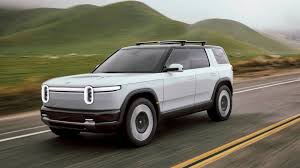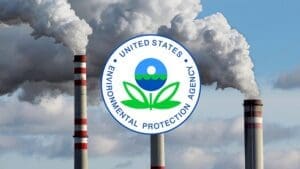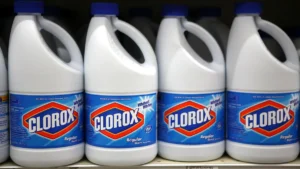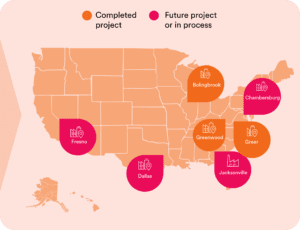Supply Chain & Logistics News (November 11-14th)
 This week I posted my early analysis of the new administration’s impacts on the energy transition, sustainability, and trade. This new administration has voiced its plans to retract from global climate diplomacy and domestic initiatives on bolstering green energy in the United States. Additionally, geo-political pressure may arise between the EU and the US if the new administration reduces the support for Ukraine during the Russian conflict. The rest of the analysis focuses on the fate of EV tax credits, tariffs, and the Inflation Reduction Act. If you are interested in reading more go here.
This week I posted my early analysis of the new administration’s impacts on the energy transition, sustainability, and trade. This new administration has voiced its plans to retract from global climate diplomacy and domestic initiatives on bolstering green energy in the United States. Additionally, geo-political pressure may arise between the EU and the US if the new administration reduces the support for Ukraine during the Russian conflict. The rest of the analysis focuses on the fate of EV tax credits, tariffs, and the Inflation Reduction Act. If you are interested in reading more go here.
Here is the Supply Chain & Logistics News for the week:
Rivian Secures 5-Year Batter Deal with LG Energy
 Rivian has signed a five-year battery supply agreement with LG Energy Solution to power its upcoming R2 model, set to launch in North America in early 2026. The R2 will use LG’s advanced 4695 cylindrical cells, integrated as a structural component of the vehicle to cut costs and improve efficiency. The Arizona-based battery production will help Rivian meet U.S. tax credit requirements, supporting the company’s goal to offer the R2 at a $45,000 starting price. The deal also enhances LG Energy Solution’s U.S. presence and expands its cylindrical battery business, complementing similar partnerships, such as a recent supply agreement with Ford for the European market.
Rivian has signed a five-year battery supply agreement with LG Energy Solution to power its upcoming R2 model, set to launch in North America in early 2026. The R2 will use LG’s advanced 4695 cylindrical cells, integrated as a structural component of the vehicle to cut costs and improve efficiency. The Arizona-based battery production will help Rivian meet U.S. tax credit requirements, supporting the company’s goal to offer the R2 at a $45,000 starting price. The deal also enhances LG Energy Solution’s U.S. presence and expands its cylindrical battery business, complementing similar partnerships, such as a recent supply agreement with Ford for the European market.
New Head of EPA Vows to Deregulate and Boost Business In America
 The Trump administration is expected to roll back EPA regulations impacting fossil-fuel power plants, potentially delaying coal plant retirements as demand rises from sectors like data centers. Michelle Bloodworth, CEO of America’s Power, highlighted six EPA rules affecting coal, including limits on carbon emissions and mercury standards, which are under legal challenge. If the administration succeeds in pausing these lawsuits, the EPA could revise or repeal the rules, possibly improving grid reliability and affordability. Environmental groups, however, are concerned about the implications for climate and health protections. They also caution against the confirmation of Lee Zeldin, Trump’s EPA pick, urging him to support the clean energy transition to keep the U.S. competitive globally.
The Trump administration is expected to roll back EPA regulations impacting fossil-fuel power plants, potentially delaying coal plant retirements as demand rises from sectors like data centers. Michelle Bloodworth, CEO of America’s Power, highlighted six EPA rules affecting coal, including limits on carbon emissions and mercury standards, which are under legal challenge. If the administration succeeds in pausing these lawsuits, the EPA could revise or repeal the rules, possibly improving grid reliability and affordability. Environmental groups, however, are concerned about the implications for climate and health protections. They also caution against the confirmation of Lee Zeldin, Trump’s EPA pick, urging him to support the clean energy transition to keep the U.S. competitive globally.
Boeing Announces First Round of 10% Reduction in U.S. Employees

Boeing announced it will start issuing layoff notices to U.S. employees this week as part of a larger plan to cut 17,000 jobs, or 10% of its global workforce, due to financial struggles. Affected employees will stay on the payroll until January to comply with federal requirements. This follows a challenging period for Boeing, including a costly strike by over 33,000 workers that halted production of the revenue-critical 737 MAX jet. The company’s difficulties, from production delays and safety investigations to securing $24 billion in October to stabilize finances, have impacted employee morale. As Boeing tries to resume MAX production, many employees await confirmation on whether their jobs will be cut.
The Clorox Company Invests Into Supply Chain Decarbonization
 The Clorox Company has partnered with carbon tracker Manufacture 2030 to promote decarbonization across its supply chain, beginning with its suppliers, according to a November 1 announcement. Through this partnership, Clorox will support its suppliers in setting and achieving carbon reduction goals by gathering emissions data, identifying decarbonization strategies, and offering ongoing training opportunities. The program, initially targeted at suppliers responsible for over half of Clorox’s scope 3 emissions, utilizes Manufacture 2030’s platform to provide tools like expert carbon management guidance and green financing options. Suppliers share emissions data and action plans, which Clorox can review to track progress, identify gaps, and collaborate on solutions. While it does not link directly to Clorox’s internal databases, the platform allows suppliers to streamline reporting by sharing data with multiple clients. Clorox has invited key suppliers to join and aims to expand participation through March 2025, expecting many to report emissions and outline reduction plans by next summer. Despite a reduction in SEC scope 3 reporting mandates, Clorox remains committed to significant carbon footprint reductions, mirroring recent actions by companies like Ford, GM, Toyota, and Kingfisher.
The Clorox Company has partnered with carbon tracker Manufacture 2030 to promote decarbonization across its supply chain, beginning with its suppliers, according to a November 1 announcement. Through this partnership, Clorox will support its suppliers in setting and achieving carbon reduction goals by gathering emissions data, identifying decarbonization strategies, and offering ongoing training opportunities. The program, initially targeted at suppliers responsible for over half of Clorox’s scope 3 emissions, utilizes Manufacture 2030’s platform to provide tools like expert carbon management guidance and green financing options. Suppliers share emissions data and action plans, which Clorox can review to track progress, identify gaps, and collaborate on solutions. While it does not link directly to Clorox’s internal databases, the platform allows suppliers to streamline reporting by sharing data with multiple clients. Clorox has invited key suppliers to join and aims to expand participation through March 2025, expecting many to report emissions and outline reduction plans by next summer. Despite a reduction in SEC scope 3 reporting mandates, Clorox remains committed to significant carbon footprint reductions, mirroring recent actions by companies like Ford, GM, Toyota, and Kingfisher.
Ulta Beauties’ Strategy on Fulfillment Center Breaks defies Traditional Models

Ulta Beauty’s supply chain transformation started in 2021 and aims to create a more adaptable and efficient network. Instead of building oversized facilities like competitors, Ulta opted for a smaller, flexible footprint with four regional distribution centers, three market fulfillment centers (MFCs), and one fast fulfillment center for e-commerce. Retrofitting existing centers with automation and upgraded technology, Ulta is also implementing Project SOAR, an ERP upgrade to improve cross-docking, enabling direct store shipments from MFCs. This new model supports omnichannel fulfillment, enhancing options for customers like same-day delivery and store pickup, while also offering employees skill advancement opportunities.
Song of the Week:
















